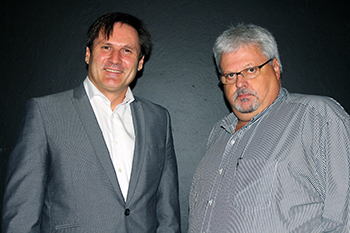Latest News Archive
Please select Category, Year, and then Month to display items
27 October 2025
|
Story Sefako Mokhosoa
|
Photo Supplied
 Ten Grade 12 learners from Mampoi Secondary School in Phuthaditjhaba.
Ten Grade 12 learners from Mampoi Secondary School in Phuthaditjhaba.
On 1 October 2025, the Projects and Innovation Directorate in the Faculty of Education at the University of the Free State (UFS) proudly hosted a certificate ceremony to honour ten Grade 12 learners from Mampoi Secondary School in Phuthaditjhaba on the Qwaqwa Campus. These learners completed a Skills Development Initiative and Workshop Series focused on digital literacy and ICT skills – a programme designed to equip rural youth with the tools they need to thrive in a digital world.
The initiative, which ran from May to August 2025, was made possible through a strategic partnership with BANKSETA to bridge the digital divide in rural communities. The learners received hands-on training in essential digital tools. Each learner also received a tablet to support continued learning and personal growth beyond the classroom.
The Director of the office in the Faculty of Education, Dr Kwazi Magwenzi, stressed that digital skills promote independence and self-directed learning. “Grade 12 is a time when learners should manage their studies, meet deadlines, and explore their options,” she said. “Digital fluency supports that autonomy. It enables learners to use online research, interactive tools, e-learning, and collaboration platforms to make learning more effective, flexible, and aligned with their pace and style. In Grade 12, where the stakes are high – with exams, tertiary entrance, and career choices – this ability helps learners become more self-directed, confident, and equipped.”
The programme not only built learners’ confidence in using ICT tools for learning and communication but also prepared them for the technologically driven environments they will encounter in institutions of higher learning.
Beyond developing digital skills, the project offered learners valuable exposure to the university environment, as their training took place on campus. Inspired by the success of this pilot, the Faculty of Education now aims to expand the initiative to reach more schools and learners across the region. The vision is to scale up access to digital education and empower more young people in rural areas with the skills necessary for academic and professional success.
This ceremony marked the conclusion of a successful training programme and the beginning of a long-term commitment to digital empowerment and lifelong learning in rural communities.
Internationally-renowned futurist proposes innovation in corporate management
2016-05-10

Pieter Geldenhuys, guest speaker at the seminar, who mapped the future of corporate management (left) with Dr Vic Coetzee, Senior Director: Information and Communication Technology Services at the UFS (right).
Photo: Hatsu Mphatsoe
|
Humans need to adapt their thinking to the world’s changes. This is Pieter Geldenhuys’s conviction.
The Information and Communication Technology Services (ICT) at the University of the Free State hosted a seminar on 22 April 2016 at the Bloemfontein Campus. Geldenhuys, the Director of the Institute for Technology Strategy and Innovation at North-West University and internationally-renowned futurist, presented his views on technology, innovation, and corporate management on this occasion.
Geldenhuys, a well- known speaker, academic, and futurist, is in the business of identifying opportunities in the changing technological and social landscape with the aim of assisting companies to prepare for the future, while being an active agent in defining it. Lately, he has been exploring the concept of a new kind of management science, which he believes is a prerequisite for institutions such as ours.
This management science incorporates physics in improving corporate management. “We have an unbelievable grasp of the world of physics,” he said, suggesting that we use our knowledge of nature to capitalise on individual and collective strengths within institutions.
He said that minor changes can change one’s future or that of an organisation completely. He even went as far as to state that the culture of an organisation is the one that determines how well you do. Relating to the adaption of organisations in a constantly changing and dynamic environment, Geldenhuys advised that, “when faced with disruption, don’t retaliate; accept.”
By making use of different tools, such as technology aw well as social and business trends, Geldenhuys is adamant that corporations and institutions will adapt easily to the world’s complex systems.